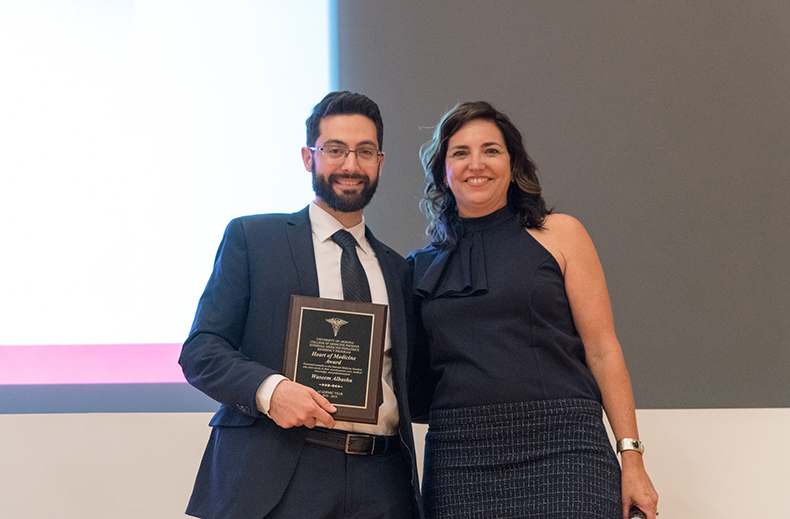
Residency Graduation Profile: Waseem Albasha, MD

Waseem Albasha, MD, viewed a career in medicine as an opportunity to care for patients in a unique way.
Albasha is one of the 23 internal medicine residents who graduated from the University of Arizona College of Medicine – Phoenix this year. Dr. Albasha, a graduate of the UA College of Medicine – Tucson, will return to Tucson for a fellowship in nephrology, a specialty focused on kidney health and kidney disease.
“I am very excited to take the next step in my learning,” Dr. Albasha said. “I chose to do a fellowship in nephrology because I have always enjoyed physiology. Nephrology is a subspecialty where you can go deeper into physiology and apply its concepts into actual practice.”
Residency Experience
“I loved residency,” he said. “I encourage everyone going into residency to enjoy it and make the most of it. There are difficult times, but they always pass and teach you huge lessons.”
Favorite Part of Residency
“My favorite part of residency was getting to be part of a team of residents and attendings to tackle patient care and think through medical decision making together,” Dr. Albasha said.
How Has Residency Prepared You for Your Next Steps?
“Residency has taught me a lot about general medicine, which is essential knowledge for a fellowship,” he said. “I have to know how to care for the whole patient, and I need to know how different organ systems interact before being able to focus on one organ system.”
About the College
Founded in 2007, the University of Arizona College of Medicine – Phoenix inspires and trains exemplary physicians, scientists and leaders to advance its core missions in education, research, clinical care and service to communities across Arizona. The college’s strength lies in our collaborations and partnerships with clinical affiliates, community organizations and industry sponsors. With our primary affiliate, Banner Health, we are recognized as the premier academic medical center in Phoenix. As an anchor institution of the Phoenix Bioscience Core, the college is home to signature research programs in neurosciences, cardiopulmonary diseases, immunology, informatics and metabolism. These focus areas uniquely position us to drive biomedical research and bolster economic development in the region.
As an urban institution with strong roots in rural and tribal health, the college has graduated more than 1,000 physicians and matriculates 130 students each year. Greater than 60% of matriculating students are from Arizona and many continue training at our GME sponsored residency programs, ultimately pursuing local academic and community-based opportunities. While our traditional four-year program continues to thrive, we will launch our recently approved accelerated three-year medical student curriculum with exclusive focus on primary care. This program is designed to further enhance workforce retention needs across Arizona.
The college has embarked on our strategic plan for 2025 to 2030. Learn more.